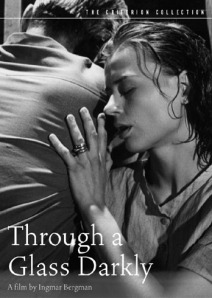“Half-woken
from a dream, I realized the church could start an electronic confessional
service, or ePriest. All of your sins are already tracked online, so they
already know what you did. After texting you penance instructions, and your
pressing 'C' to confirm, you'd be e-mailed indulgence coupons that you can
print or swipe from your mobile device to purchase more lapda, uh, sins later.
Jonathan
Malone, what do you think?”
This was posted by a friend of mine on Facebook a couple of
weeks ago. Because of the Christmas madness and the other pressing
responsibilities (I really had to catch up on episodes of “Brooklyn 99”) I did
not get to give a good answer….until now The Christmas madness is over, I have
watched all the shows that I need to watch, and I’m enjoying the weekend with
my in-laws. So now is a perfect time to sneak away and respond to this
tongue-in-cheek theological curiosity.
First, let me say
that I am glad that my 3+ years of Masters study and 10+ years of doctoral work
qualify me for such an important question. I am sure there were many other
people that my friend could have tagged via Facebook with such a quandary.
Thanks for thinking of me. (The truth is that we were in High School together
and I may be the only religious person he knows).
Second, the question
is actually a good one that caused me to dust off more than one tome of
theological import. Let’s start with the idea that all of our sins are tracked
online. I wonder if such a notion would make the presence and purpose of such
an app obsolete. If we knew that we were being tracked specifically to keep
tally of all of the “bad” or taboo places we went to, things we posted, etc.,
would not that be enough of a deterrent? I think of Foucault’s Panopticon (via
Bentham); the idea of a prison where everyone is watched, or at least believes
that they are being watched all the time. Yet we already live in a world of surveillance
and we still try to get away with things. We have cookies tracking our actions,
browser history letting our spouses and parents know where we have been, and
the NSA is no doubt documenting our every keystroke. I’m even told there is
some fat man in the North Pole who sees me when I am sleeping and when I am
awake. Even with all the surveillance that already exists the majority of the
human race, when online, will still try to get away with, sneak, or do
something suspect and act as if no one is the wiser. If you don’t believe me I
then I have one word for you – porn.
It may be a sad statement on humanity that even the notion
of an omnipresent, omniscient God who sees and knows even more than the fat man
of the North Pole does not keep us from making bad decisions from time to time
to time. So I think my friend is right that we need something for confession
because we are going to “sin.”
Yet I wonder about an ePriest that already knows everything
you did and just passes out the penance as if it were a tax. Part of the
sacrament of the confession is the individual confessing, fessing up, admitting,
and embracing the truth. If this is done with a priest or, in my tradition,
directly with God via prayer, it is important for the individual to name what
he or she believes he or she has done. Not everything we may consider to be a
sin is actually sinful (free reign on eating chocolate!), and not everything we
consider to be ok actually is (so back off the chocolate!). Add to this the
notion of sin as a break in one’s relationship with God, i.e. not doing what
God would like to do. The act of penance is to rebuild/regain your relationship
with God. So if such an app were to exist it would need to be open ended where
the user would have to speak or type in the sins that he or she feels moved to
confess.
Third, the notion of indulgences
is something that is a bit outside of my tradition. We focus on grace (as given
by God) over works (as done by people), meaning you do not need to get a coupon
to validate your various transgressions each time you commit them. You only
need to accept the actions on the cross once and you are forgiven your sins for
all time. That is a serious deal! Those in the more confessional tradition will
agree with the grace but probably argue that you need the confession and the assurance
of forgiveness (i.e. indulgence) for the sins you continue to commit as you
grow in your faith. I agree with such a sentiment, only I would turn again and
again to the universal grace of the cross as the indulgence. It is important to
confess and to work to be better, but in the end we cannot mete out forgiveness
on a mobile device.
In summary, the act of confession (in prayer or in the
booth) is a good thing to do. The reminder of forgiveness is a good thing to
have. We probably don’t need an ePriest to make it all happen (I haven’t even
gotten into the importance of human interaction and real-time ritual).
All that said if my friend is considering creating such a
device/application and is looking for the endorsement of said device from a
clergy then I am sure there is a way we can make it work. Call me!


